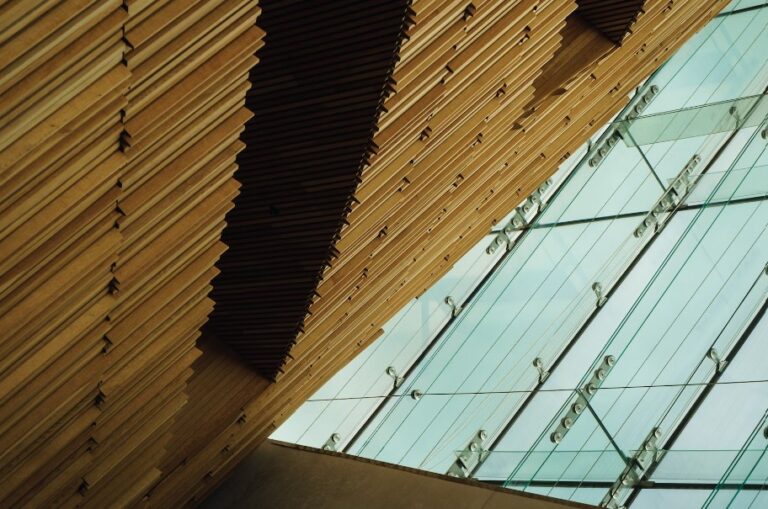At a factory in East London, wooden slabs are transformed into joists and cladding panels. Walls, roof and windows: all these components are assembled to build wooden houses of different sizes, from studio apartments to office units to two-story houses.
The peculiarity is that no human builder is found to build them. That’s because these modular housing units, designed by tech start-up Automated Architecture (AUAR), are built entirely by robots.
Table of Contents
The value of sustainability
Using prefabricated Lego-like plywood blocks helps break down what is often a long and complicated construction process into small tasks that pre-programmed robots can perform. This, in turn, reduces costs, delivery times and environmental impact.
An AUAR house costs 20% less than the market average and can be delivered in just six weeks. The system reduces “embodied” carbon emissions by 80% compared to traditional construction methods.
We are talking about the emissions that occur in the first two years. I.e. in the construction phase of a project that involves the extraction of raw materials, production, transport, installation and waste disposal. The reduction is due to the use of wood and other organic materials, local manufacturing and a short supply chain.
Faster, more sustainable construction techniques like those developed by AUAR may soon become the default choice. Not only because the world will have to build around 2 billion new homes by the end of the century. But also because the construction sector is responsible for 40% of global carbon emissions.
The AUAR wooden houses
AUAR – a spin-off of the Bartlett School of Architecture at University College London – uses Artificial Intelligence and machine learning to optimize design, increase material efficiency and reduce costs.
It’s an approach that Retsin says should help transform an outdated, resource-intensive industry that suffers from permanent labor shortages.
The average building today is constructed using over 7,000 different parts that must be assembled into a functional whole. Globally, productivity growth in the construction sector has stabilized over the past two decades, in stark contrast to manufacturing, whose productivity increased by 3.6% over the same period.
“The use of prefabricated blocks could make construction more accessible, faster and therefore less capital-intensive, opening the market to a larger group of homebuilders,” says Retsin. “We hope to enable developers, contractors and architects to build better and encourage a new group of people to start building homes.”
Read also: Are tiny homes the future of sustainable housing in urban areas?
Assemble, disassemble, repeat
Another distinctive aspect of AUAR’s construction process is the use of an environmentally friendly engineered wood product called cross-laminated timber (CLT). AUAR’s prefabricated slabs are also designed to be reused, allowing buildings to continuously adapt and meet future needs, thus embracing the concept of the circular economy.
“While wood is an obvious choice in the context of the global climate emergency, it also has the potential to transform construction into an automated industry,” says Retsin.
The CLT market is expected to grow globally to $2.5 billion by 2027 from $1.1 billion in 2021, an annual increase of approximately 15%.
Some experts believe it could grow even faster after key revisions to the International Building Code raised the height limit for wooden buildings to 18 storeys in 2021 from the previous seven. AUAR is also setting up a factory near Ghent, Belgium, where five robots will build 40 houses over the next year.
Read also: Stockholm Wood City: from Sweden the world’s largest wooden neighborhood












